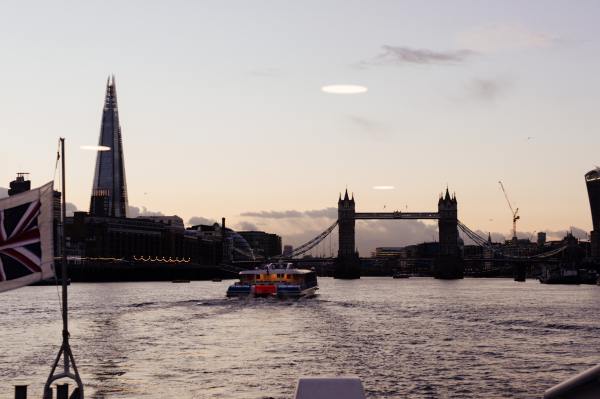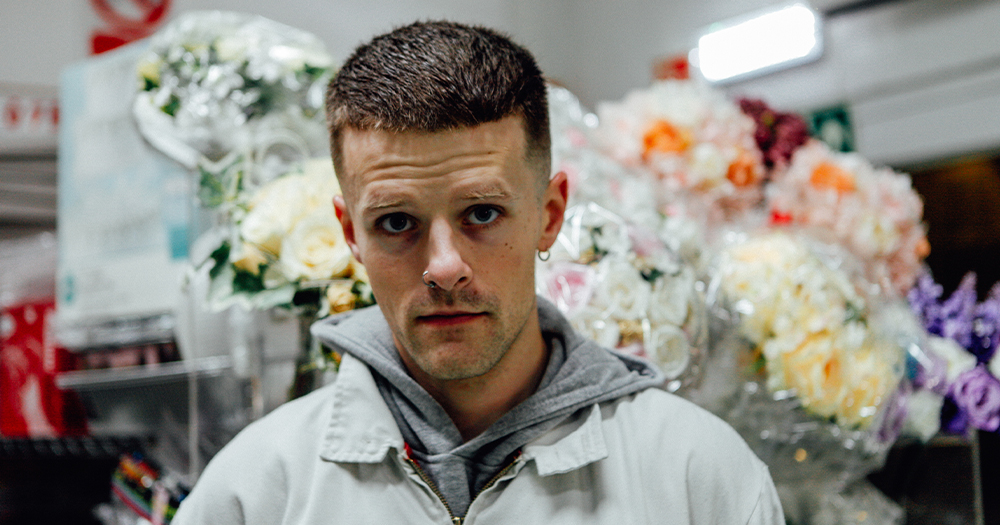With ‘Speak Softly, Go Far’, Dublin Fringe Festival and the Abbey Theatre have invited a trio of compelling artistic voices to create audio encounters exploring intimacy and connection in a reawakened world. One of those creatives is Oisín McKenna, an award-winning queer writer and artist, working in theatre, video, comedy and fiction. He makes work about love, money, health and history.
As a queer person who comes from a small town, I’ve always been drawn to cities. Growing up in Drogheda, it always seemed crucially important that I move to Dublin as soon as I could. Once I’d done that, I felt, then my real life could finally begin. For many queer people, cities contain the things needed to survive, the crucial ingredients to having a liveable life: community, culture, a social life, a sex life, and all the possibility that these things entail.
In Speak Softly, Go Far, my new audio work for Dublin Fringe Festival, I explore what it means for both individuals and community for cities to become so inhospitable to these things – these crucial ingredients for life – and ask questions about what might happen from here.
When I was 15, a new shopping centre opened in Drogheda, and walking through its glass doors for the first time had been the most exciting moment in my life up until that point. It was like in a film when someone from the countryside catches a glimpse of the magical Manhattan skyline on their way to the city from JFK Airport. Truly dumbstruck by the scale of its beauty, they stare silently from the backseat of a yellow taxi, mouth agape, shining lights reflected on their face.

I had always dreamed of living in a city, and when the shopping centre opened, with its high street brands and coffee chains, it felt like I didn’t have to wait until I was old enough to leave home: the city itself had come to me. I could sit in Insomnia, amongst the low lighting and wall vinyl display of the Brooklyn Bridge, Eiffel Tower, and Brandenburg Gate, a song playing in the background that sounded exactly like Alanis Morissette, but somehow, was not Alanis Morissette.
I could have a big frothy hot chocolate, whipped cream and tiny marshmallows peppered on top, and scoop the dregs into my mouth with a glamorous silver dessert spoon. I could browse HMV for hours at a time, reading the blurbs off DVD boxes and flicking through the poster rack, variously enchanted and scandalised by the images of heavy metal bands, ‘Keep Calm and Carry On’ motifs, and orange and white prints of the ‘Choose Life’ monologue from Trainspotting.
But by the time I left Drogheda, the new shopping centre didn’t seem like the metropolis that it once did. HMV was long gone, as were many of the high street shops. A second phase of the development was planned, but never completed. The frame of the building was constructed before the financial crash put a stop to it. Its shell remained there for years, with big concrete columns and sheets of brown rusted metal sagging towards the foundations.
I moved to Dublin when I was 20 – ready to begin the new queer life that I had always dreamed of. It was May 2012 and I rented a flat right in the middle of Ranelagh with my best friend. The flat was tiny, but we loved it. We hung pictures of George Michael, Sinead O’Connor and for reasons to do with our burgeoning understanding of irony, Pope John Paul the Second.

We each paid €90 a week, which at the time, we considered to be an extortionate ripoff verging on outright scandal. It went up by €5 every year, so that when I left that flat in 2015, just after the marriage equality referendum, I was paying €105 a week. Recently, Edel saw the flat advertised on a property website. A tiny room which not so long ago cost less than €400 a month now costs more than €1200 a month.
I moved to London when I was 26. Many people I knew had already left Dublin and I was afraid of being the last one there. It was November 2017, and I moved straight into a central London warehouse, home to 11 other people and one horny cat. The warehouse was ten minutes from London Bridge, and I could see the Shard from my front door.
I paid only £416 per month, which included internet and a fortnightly house shop. The year living there were among the best years of my life. I’d been happy before, but only ever became aware of it after the happiness was already gone. Now, my happiness was big and vivid, and I couldn’t help but notice it. At the end of 2020, our landlord began the process of evicting us. It was in a prime location and he could make more money off it than we could ever have given him.

I turned 30 this year. I never thought I’d mind getting older, but in the months of lockdown leading up to my birthday, I found myself getting depressed. The things that had made life possible in my twenties – living cheaply in cities, going to parties, spending time with my friends – had been gentrified, redeveloped and marketed out of existence. Covid, obviously, hadn’t helped either.
London or Dublin didn’t hold any of the promise that they used to, and while only a few years ago it felt that my life and the lives of my friends could take any number of varied directions, it felt as if those lives had congealed into something smaller. People hunkered down, risk averse, and it felt like the realms of possibility had shrunk.
I tell these stories to give small, specific examples of how a city can change, an intimate history of broader social and economic trends. I’m interested in the ways that political forces shape a person’s emotional life. In Speak Softly, Go Far audience members are invited to go to a place in the city that was important to them, but which is now gone. There, they will listen to a 15 minute audio, on headphones, by themselves. They’ll be encouraged to consider their own intimate history of the city, how it’s changed and how they themselves have changed.
Walking through the cities that I’ve lived in, I can’t help but be struck by how drastically the landscape has transformed in the past ten years. Venues that I used to go to have turned into hotels, places in which I used to live cheaply are now unaffordable. In Speak Softly, Go Far I question the psychological impacts – on the individual and on society – of living in the cities in which the realms of possibility are so severely curtailed, and in which the future becomes nearly impossible to imagine.
To experience Speak Softly, Go Far, get your ticket here.
© 2021 GCN (Gay Community News). All rights reserved.
Support GCN
GCN is a free, vital resource for Ireland’s LGBTQ+ community since 1988.
GCN is a trading name of National LGBT Federation CLG, a registered charity - Charity Number: 20034580.
GCN relies on the generous support of the community and allies to sustain the crucial work that we do. Producing GCN is costly, and, in an industry which has been hugely impacted by rising costs, we need your support to help sustain and grow this vital resource.
Supporting GCN for as little as €1.99 per month will help us continue our work as Ireland’s free, independent LGBTQ+ media.

comments. Please sign in to comment.